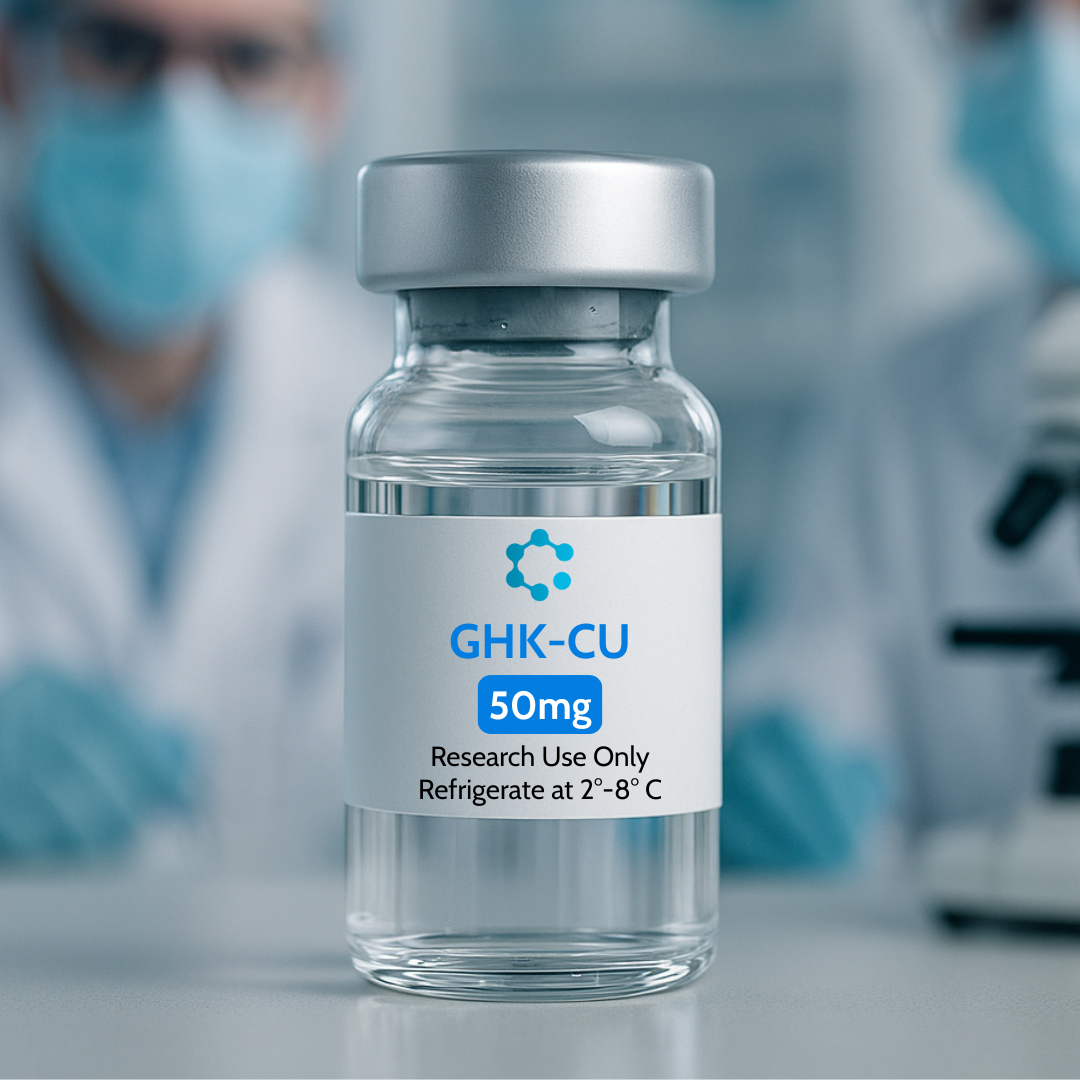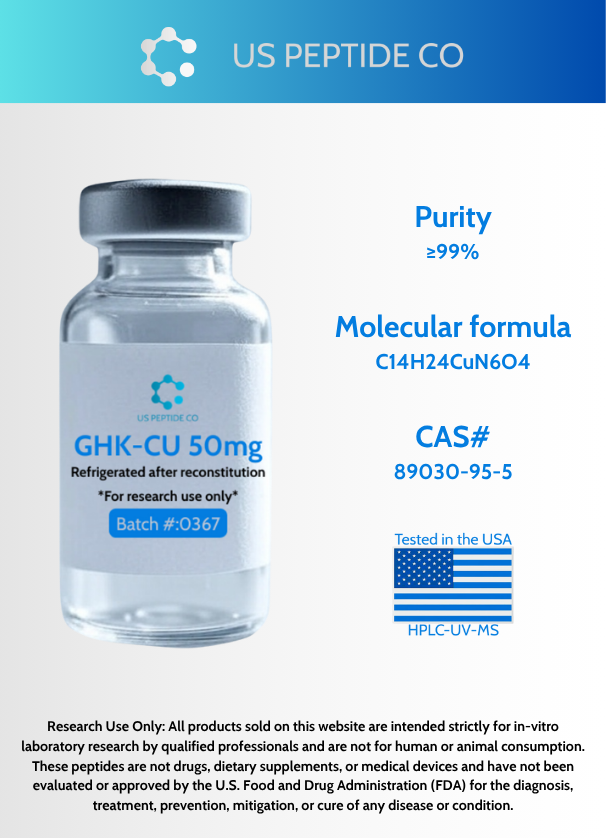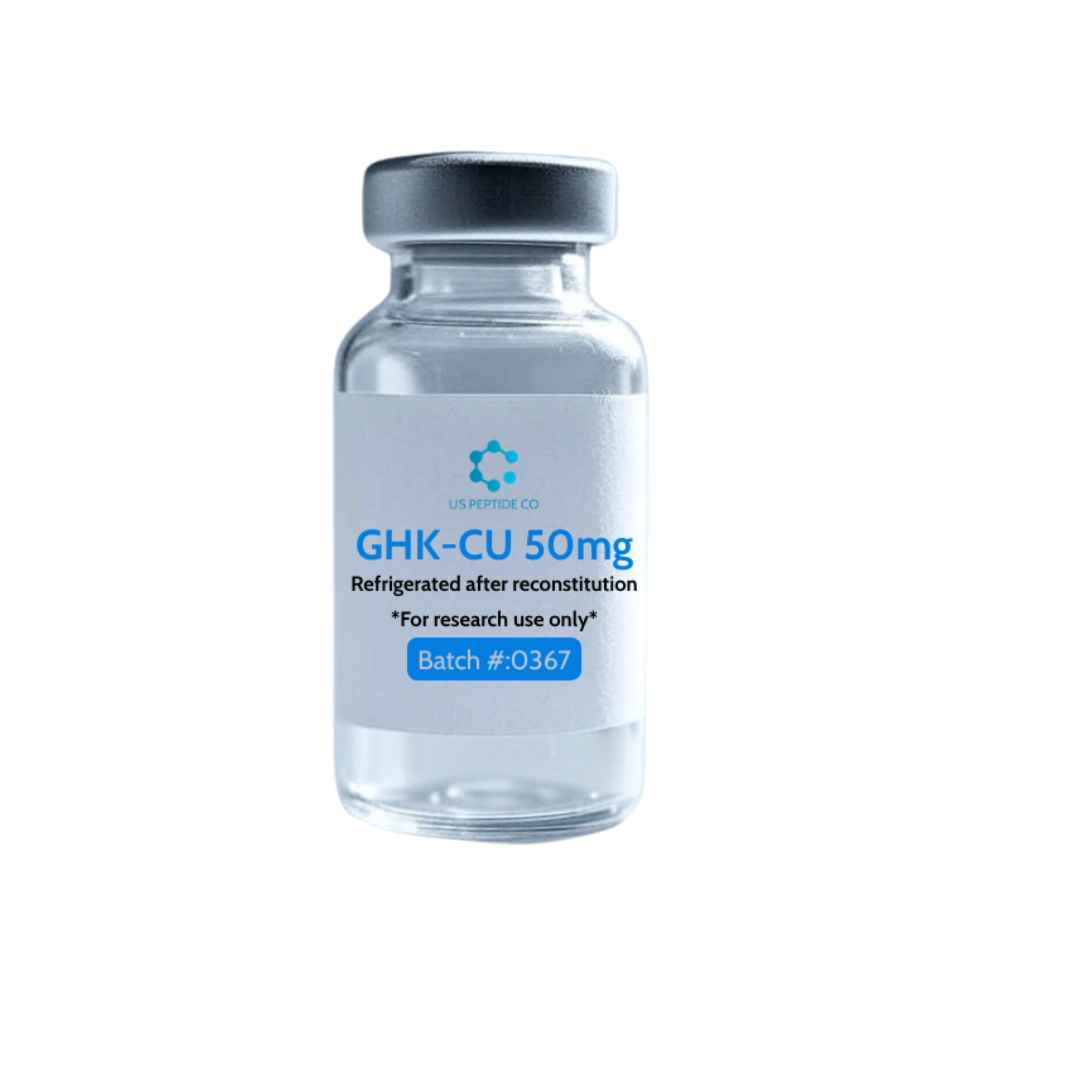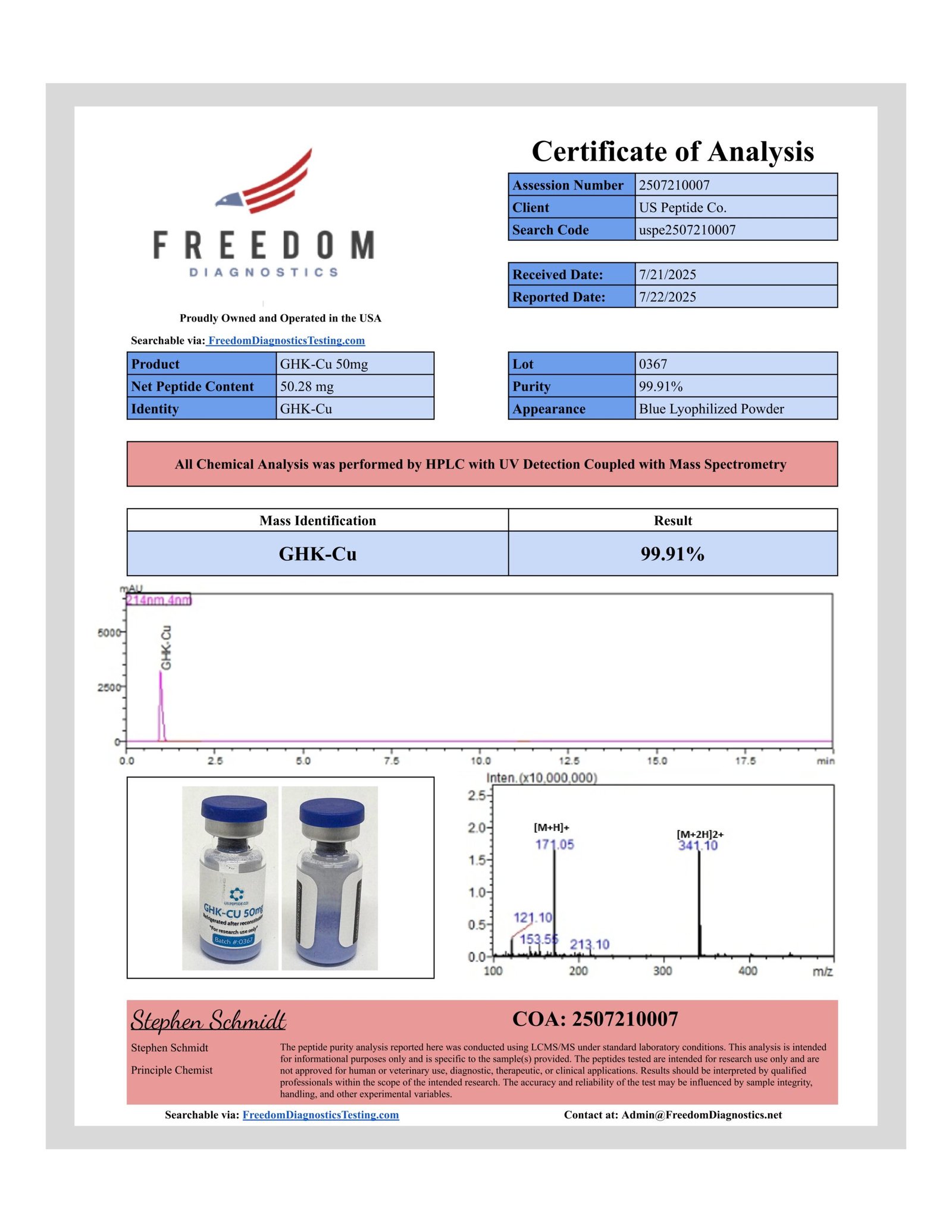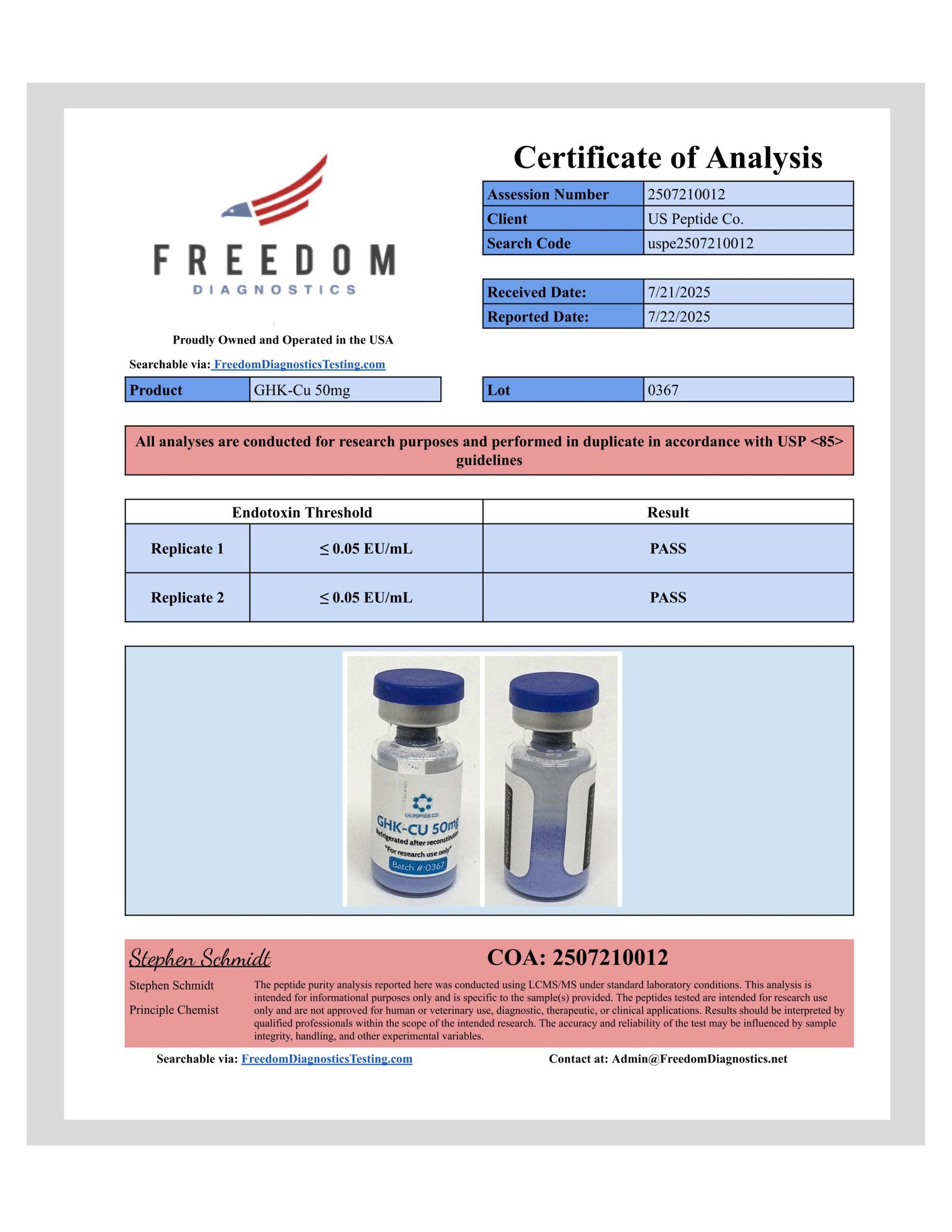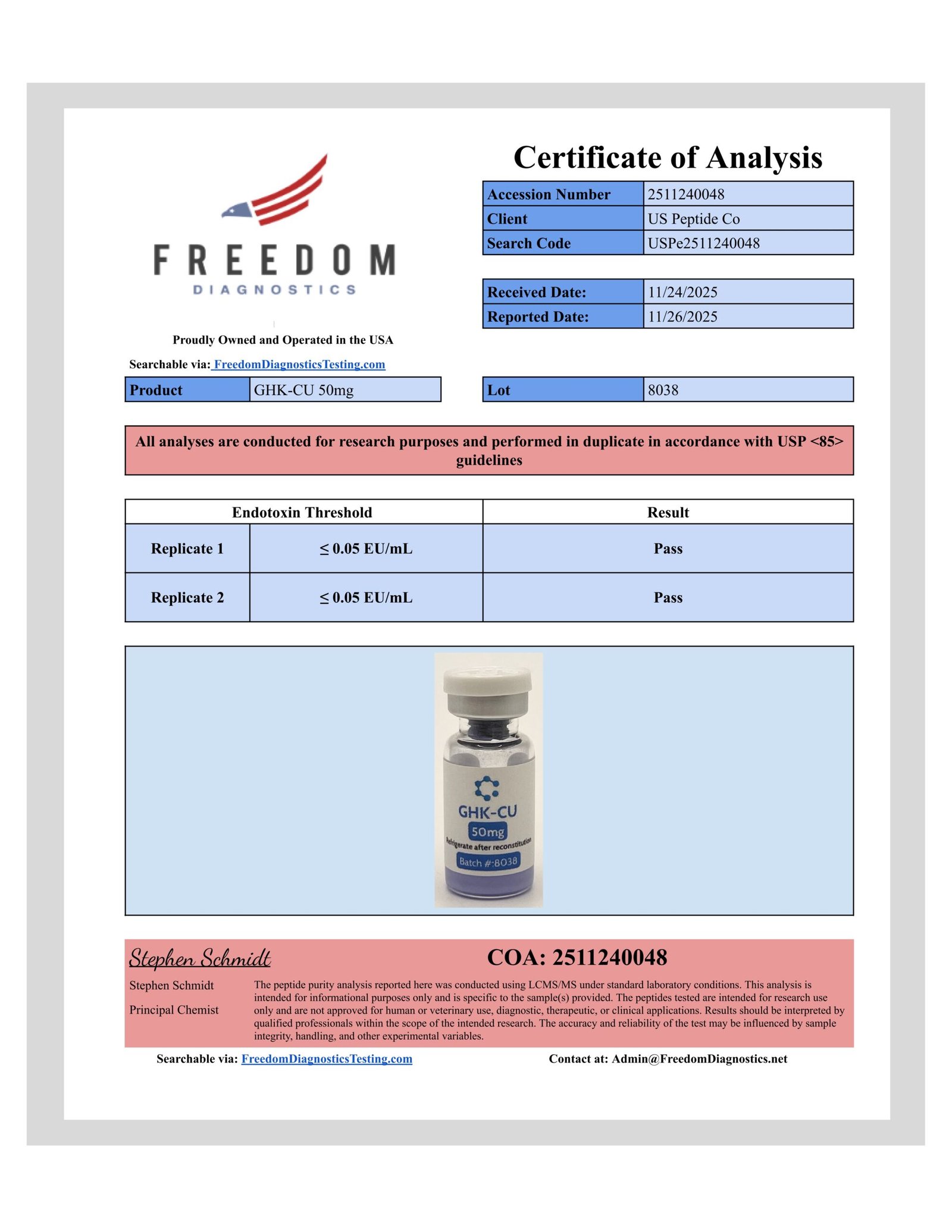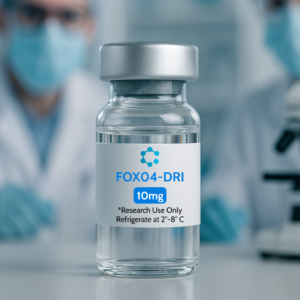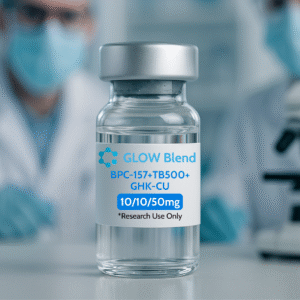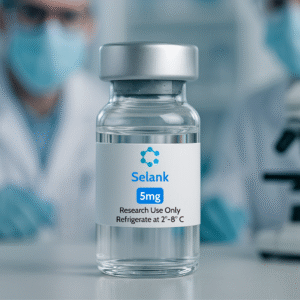GHK-Cu Peptide (Glycyl-L-histidyl-L-lysine-copper) is a naturally occurring copper-binding tripeptide complex extensively studied for its biological properties in cellular research applications. This research-grade peptide maintains a molecular weight of 340.85 Da and demonstrates high stability under proper storage conditions.
Originally discovered in human plasma, GHK-Cu represents one of the most researched copper peptide complexes in scientific literature. The tripeptide’s unique copper-chelating properties enable researchers to investigate metal-dependent enzymatic pathways and copper homeostasis mechanisms in controlled laboratory environments. Its small molecular size facilitates cellular uptake studies, making it invaluable for membrane permeability research.
Physical Form: Lyophilized Powder
This peptide is provided in lyophilized (freeze-dried) form to ensure maximum stability and shelf life. Reconstitution with an appropriate sterile diluent (bacteriostatic water or sterile water for injection) is required before use. The lyophilization process preserves peptide integrity during storage and transport. For research applications only.
- Reconstitution: Bacteriostatic water recommended for research applications
Technical Specifications
- Molecular Formula: C14H24CuN6O4
- Molecular Weight: 340.85 Da
- Purity: ≥99% (verified by third-party analysis)
- Appearance: Blue crystalline powder
- Storage: Store at -18°C to -22°C for optimal stability
- Shelf Life: 24 months when stored properly
- Reconstitution: Bacteriostatic water recommended for research applications
Quality Assurance Every batch of GHK-Cu peptide undergoes rigorous third-party testing to verify:
- Peptide purity and identity confirmation
- Microbial contamination screening
- Molecular weight verification via mass spectrometry
Research Applications GHK-Cu has been the subject of extensive peer-reviewed research examining its role in:
- Cellular regeneration studies
- Collagen synthesis research
- Antioxidant pathway investigations
- Wound healing mechanism studies
- Tissue remodeling research protocols
- Tissue remodeling research and matrix metalloproteinase activity
- Gene expression studies related to tissue repair pathways
Recent Study Published with NIH Library
Certificate of Analysis Each order includes a comprehensive Certificate of Analysis (COA) documenting all quality control testing results, batch information, and purity verification data.
Important Research Notice This product is intended exclusively for in-vitro research purposes only. Not for human consumption, therapeutic use, or any application outside of laboratory research settings. Researchers must comply with all applicable institutional and regulatory guidelines.

